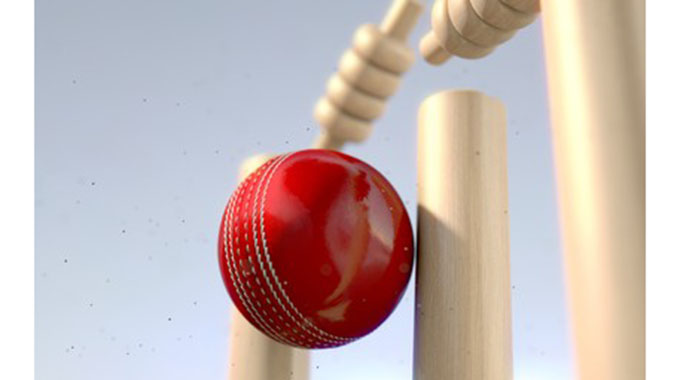Recycling cans made easier

Sifelani Tsiko Innovations Editor
A University of Zimbabwe environmental engineering expert has come up with a simple and low -cost method that converts spent aluminium beer can waste into valuable materials for making aluminium window frames.
Dr Terrence Wenga, 35, said recently that proper waste utilisation and management could help Zimbabwe to produce valuable materials from waste, saving the country millions of dollars it spends on aluminium product imports.
The value of imports of aluminium structures and parts of structures (doors and windows and their frames), aluminium plates, rods, profiles, tubes and other items to Zimbabwe totalled US$4,56 million in 2020.
With this innovation, Dr Wenga said Zimbabwe can save up to US$4,5 million a year worth of imports.
“There is an increasing open dumping of beverage aluminium waste cans in our environment. Approximately 1,65 million tonnes of waste are produced annually in Zimbabwe and aluminium waste cans are one of the major waste components of environmental pollution in our country,” he said.
“Aluminium cans do not decompose, instead they can stay in our environment for centuries. Aluminium beverage waste cans reduce the aesthetic value of an area when they are not disposed of in the proper dumping site.
“Through our own innovation, aluminium waste cans can be recycled for use in almost all applications since the metal’s atomic structure is not altered during the processing, meaning that the value of the material can be recovered without loss of quality.”
Dr Wenga won ZWL$2 million for his innovations at the just ended UZ Research Innovation and Industrialisation Week.
In a research, Dr Wenga did with his partner, Farai Mhaka, they successfully melted aluminium waste cans and produced window frames that have since been certified by the Standards Association of Zimbabwe.
In their prototype, the researchers produced window frames with good corrosion resistant properties and high tensile strength.
“We produced window frames that are cheaper than conventional window frames. Converting aluminium waste into window frames reduces environmental pollution caused by the dumping of aluminium waste cans,” Dr Wenga said.
“There is a great potential to scale this up by utilising aluminium waste cans to produce window frames on a bigger scale. Aluminium is one of the largest sources of solid waste that Zimbabwe is grappling with. We can harness it and reduce our environmental pollution levels whilst at the same time cutting our huge import bill for aluminium.”
Zimbabwe imports aluminium cans mainly from China and South Africa. The country imported 1,213 million aluminium cans worth approximately US$3,14 million in 2019.
The amount of aluminium cans imported increased in 2020 to 2,3 million tonnes and the expenditure also grew to US$4,57 million.
In 2021, the figure rose to 2,4 million tonnes at a cost that was projected to surge to US$8,37 million.
“This increase in the importation of aluminium cans is due to increased consumption. All these million tonnes of aluminium cans are going to waste. Therefore, converting aluminium waste cans to a valuable product such as window frames has shown to be a noble idea and there are enough quantities to make window frames,” Dr Wenga said.
Aluminium cans constitute the largest single use of aluminium globally, more than car design, or spacecraft, building, and other industrial use.
Due to its widespread domestic usage, there are huge concerns about its impact on the environment.
The UZ researchers collected thousands of beverage aluminium waste cans which they crushed and melted in a foundry furnace.
After melting, they added other alloying elements such as magnesium and silicon into the furnace in different ratios to form aluminium 6 series alloy.
“The mixture was stirred thoroughly to ensure homogeneity. The homogenous mixture was poured into the frame shaped mould. A flat wood was pressed on the surface of the mixture in the mould to compact it.
“Afterwards a grinder was used to smoothen the surface. The molten mixture was left to solidify. The pieces of the frames were cut and tested for tensile and compression strength, corrosion resistance and weldability,” said Dr Wenga.
From electronic components to window frames and plates, aluminium has proven to be a utility sweetheart for big industries locally and globally.
Its appealing appearance makes it useful for design, it is a better alternative to other metals when considering weight as well as strength.
It withstands corrosion as well and can be used for storage of food with low shelf life.
But its widespread usage has raised huge concerns about its impact on the environment.
With such staggering numbers and its impact on the environment, recycling aluminium cans could help reduce environmental pollution.
Global bottled beverage giants are ramping up trials of easily recyclable aluminium cans to replace plastic that pollutes the world’s seas.
Even though aluminium cans might cause less ocean waste, they come with their own eco-price – the production of each can pumps about twice as much carbon into the atmosphere as each plastic bottle.
Scenes of huge piles of aluminium can waste could easily be harnessed using recycling processes.
“Aluminium recycling into window frames takes up to 95 percent less energy than to produce primary aluminium from bauxite, which also limits emissions, including greenhouse gases,” said Dr Wenga.
“The recycling of aluminium into window frames also produces significant cost savings over the production of new aluminium, even when the cost of collection, separation and recycling are taken into account. Over the long term, even larger national savings are made when the reduction in the capital costs associated with landfills, mines, and international shipping of raw aluminium are considered.”
Brazil recycles 98,2 percent of its aluminium waste cans production, ranking first in the world, more than Japan’s 82.5 percent recovery rate.
Many other countries in Europe and around the world are recycling aluminium waste cans into various structures.
“Through Education 5.0, we want our young researchers to find solutions to the country’s pressing environmental problems,” said Prof Florence Mtambanengwe, UZ Innovation Hub executive director. “Dr Wenga has done well in his work to address pollution that emanates from aluminium beer cans.”







Comments